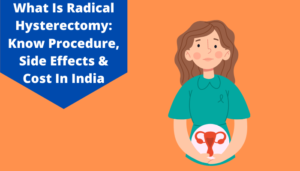Health Insurance Premium Calculator Online in India
Health Insurance Premium Calculator
Health insurance is an essential tool for safeguarding oneself from medical expenses and for protecting one’s savings. Health emergencies could occur at any time. At such times, health insurance helps to meet medical expenses. Not just sudden emergencies, health insurance even helps to pay for costs of planned medical treatments.
Simply put, health insurance is an agreement between the policyholder and the insurance company under which the policyholder pays an amount known as premium at regular periods in return of the insurance company’s assurance to pay towards the policyholder’s medical expenditure. Health insurance premium can be paid either in one annual installment, half-yearly, quarterly or monthly installments.
The benefits and sum insured of health insurance outweigh the premium amount that policyholders pay for the insurance. Yet, investing in health insurance plans is not considered a priority in personal financial plans. Most youngsters think that they do not require health insurance because they are healthy. Many find it confusing and cumbersome.
How Do Health Insurance Premium Calculators Work?
Calculating health insurance premiums with the help of online calculators is easy and straightforward. While the process of calculating premium may differ from website to website, some standard patterns are common to all platforms. Here is the standard procedure:
- On the webpage of the health insurance marketplace or company, find the health insurance premium calculator.
- Most platforms would ask for the location/city, pin code, and your annual income. You should fill in the details correctly.
- The health insurance premium calculator would have different options, such as the number of members included in the policy, age, etc. Select the options that apply to you.
- Next, the calculator might ask for the current medical status of all the members, contact details, the sum assured, and more.
- After you’ve shared all the details, you can select proceed. The insurance company would share the premium details with your contact details. Some calculators would give you the response on the spot.
Benefits of Using Health Insurance Premium Calculators
There are many benefits of health insurance premium calculators. Many people find insurance to be confusing and the calculations complicated. That’s where health insurance premium calculators come in – to simplify the process of calculation. It helps people make calculated and informed decisions.
- Health insurance premium calculators are free and easy-to-use tools. Anyone can use this tool to gain more clarity and estimates of premium costs to make health insurance decisions.
- Many people might find the process of premium calculation complex. Health insurance premium calculators simplify the process of calculation.
- As health insurance premium calculators make it easy for the insurance seeker to calculate the premium, it helps in personal financial planning and budgeting.
- One can calculate premiums for different plans across different websites; compare premiums of different plans, and decide about buying the best suitable plan.
Factors that affect health insurance premium
Many factors are considered while determining the health insurance premium amount. The following are some factors that affect the premium calculation and are considered by health insurance companies.
-
Sum assured:
Sum assured directly affects the premium amount. The larger the sum assured, the more the premium. However, factors such as co-payment and sub-limits can also affect the premium even though the sum assured may be higher. If a policy has a high sum insured but there is a co-payment clause, then the premium amount would be lesser.
-
Age:
Age is a key factor considered while determining the premium. The older the policyholder, the higher the premium, because older people are more susceptible to illnesses and hospitalization. The probability of older people having pre-existing diseases is also higher and hence they might require emergency hospitalization. These factors also affect the sum insured. If the likelihood of a person being hospitalized is more, the sum assured should ideally be higher to meet the medical expenses. Being high-risk applicants, the premium of older people’s insurance would increase considerably. Conversely, young people who are generally healthy and do not have critical illnesses or pre-existing conditions would have a lower premium.
-
The type of health insurance plan:
The kind of health insurance plan – individual, family floater, group health insurance, senior citizen health plan or critical illness health plan, among other types of plans, is a crucial factor in the calculation of the premium amount. The older a policyholder, the more the premium amount would be. Conversely, younger policyholders pay a lesser premium. The reasons for this are simple – older people are more prone to the risks of illness and hospitalization, and hence the chances of claims would increase. Now, if an individual buys a family floater plan that includes senior parents, the premium of such a health plan would be more. Similarly, critical illness health plans and specific illness health plans cost more than comprehensive health plans because these are high risk plans for insurers, for which they may end up paying huge claims.
-
Medical history:
Usually, insurance companies assess the insurance applicant’s personal medical history. They also consider the applicant’s family medical history. Insurance companies may or may not require a policyholder to go for a pre-policy medical check-up. However, most insurers gather the medical history of individuals and their families to ascertain the quantum of risk and the probability of claims. E.g., a person with a history of frequent claims may have to pay a higher premium amount, as the insurance company would determine from the claims history that the person is prone to hospitalization and health risks. Moreover, those who demonstrate unhealthy lifestyle habits such as smoking and drinking, are generally charged a higher premium by insurers.
-
Marketing expenditure of the insurer:
Insurance is a competitive market and companies often end up spending a substantial amount towards marketing initiatives. The amount spent by insurers on marketing material, advertisements, brochures, etc, is generally recovered from the premium amount paid by policyholders. This means that if the insurer has introduced a new insurance product in the market, the chances are that the premium for such products could be high so as to recover the marketing costs.
Tax benefits of health insurance
Health insurance is an agreement between a health insurance company and a policyholder wherein the insurance company agrees to compensate the insured for medical expenses for the policyholder in exchange of premium. Here, medical expenses normally refer to hospitalization, although there are exceptions. Health insurance policyholders can avail many tax benefits on the premium paid towards the policies.
Tax benefits under Section 80D: Under Section 80D, an individual or a HUF (Hindu Undivided Family) can avail of tax deductions. The premium paid towards a health insurance policy can be deducted from the total taxable income. Tax deductions under different situations according to age:
- Individual or all family members under 60 years: Up to Rs 25,000 can be deducted from the taxable income. This Rs 25,000 should have been paid as premium or towards preventive health check-up.
- Individual, all family members and parents under 60 years: Up to Rs 25,000 can be deducted from the taxable income. (Rs 25,000 towards self and family insurance + Rs 25,000 towards parents insurance), taking the total benefit to Rs.50,000 per annum.
- If the eldest member in the family is under 60 years and parents are above 60 years: Up to Rs 75,000 can be deducted from the taxable income. (Rs 25,000 towards self and family insurance + Rs 50,000 towards parents insurance)
- Self or eldest member in the family is over 60 years and parents are over 60 years: Up to Rs 1 lakh can be deducted from the taxable income (Rs 50,000 towards self and family insurance + Rs 50,000 towards parents insurance). This is the maximum benefit that can be legitimately claimed by a person under Section 80D in a single year.
How to use health insurance premium calculator by IIFL
The following are the basic steps to be followed when using health insurance premium calculator.
- Search for your choice of health insurance company’s website
- Most insurance companies have an online premium calculator on their website
- Find the calculator and fill in the details as required
- Select options according to your requirement – type of plan, number of members, age, and sum insured, etc.
- Share your contact details
- Click on calculate premium
- The insurance company will share the premium amount at your contact details
Types of Best Health Insurance Plans in India
FAQ
How do you calculate health insurance premiums?
• Insurance premium per month = Monthly insured amount x Insurance Premium Rate
• Insured person's self-paid premium per month= Monthly insured amount x Insurance Premium Rate x Insured person's self-pai ratio
• Insurance premium paid by the governments per month = Monthly insured amount x Insurance premium rate-Insured person's self-paid premium
What is the premium amount in health insurance policy?
The premium is a pre-decided amount that an insured policyholder needs to pay periodically to the insurance company.
How do you calculate the annual health insurance premium?
An annual premium amount is an amount that a policyholder needs to pay to an insurance provider in exchange for a one-year insurance policy. This insurance policy offers certain benefits and provides coverage for some events. Some insurance companies may require annual premium payments, but others offer flexible payment options from which policyholders can choose at their convenience.
Is an insurance premium monthly or yearly?
Depending on your chosen policy, you can pay either monthly or yearly. These days, many health insurance companies have started accepting monthly payments as installments for health insurance premiums. Very often, policyholders find it difficult to pay the entire premium amount at a time, and thus, this move has been introduced.
How often do you pay an insurance premium?
Some insurance companies permit customers to pay their insurance premiums in instalments monthly, quarterly or semi-annually.
Does health insurance premium increase with age?
Your health insurance premium is directly proportionate to your age. This means you need to pay higher premiums once you grow older. Insurance companies believe that with the rising age, you will become more susceptible to various health problems. You will be called a high-risk person and to mitigate your risks, your premium amount will also increase.
Is health insurance premium fixed?
Your health insurance premium is dynamic this means it keeps changing every year. But most policyholders are not aware of this face. But if you purchase a term insurance or life insurance policy, then your premium amounts will be fixed for the policy term.
What are the different types of insurance premiums?
Various types of insurance premium modes are,
• Lump lum: you need to pay the total amount at a time at the beginning of the policy
• Monthly: here, you need to pay your premiums every month. These are affordable and easy.
• Quarterly: You need to pay your premiums quarterly i.e. 4 times a year
• Semi-annually: Here, you need to pay your premium twice a year
• Annual: Here, you need to pay your premiums once a year. This could make a hole in your pocket.
Which type of insurance has a higher premium?
A comprehensive insurance policy that offers you more coverage than another policy will come up with a more expensive premium. Your premiums will be affordable if the amount of coverage is less.
What factors affect health insurance premiums?
• Age: Once you grow older, your health insurance premium will also be increased
• Medical history: If you have a family history of cancer, heart disease, blood pressure, etc. your premium amount will also be increased
• Body Mass Index(BMI): People with a higher BMI usually pays a higher premium than those with a normal BMI.
• Smoker: If you are a regular smoker, you need to pay higher premiums for your insurance as insurance companies consider you a riskier person.
• Geographical location: Your residential place may also affect the rate of premium that you need to pay.
• Profession: If your job is stressful or you need to work in a hazardous environment, then the companies think that you are more prone to medical issues and hence, you need to pay a higher premium.











